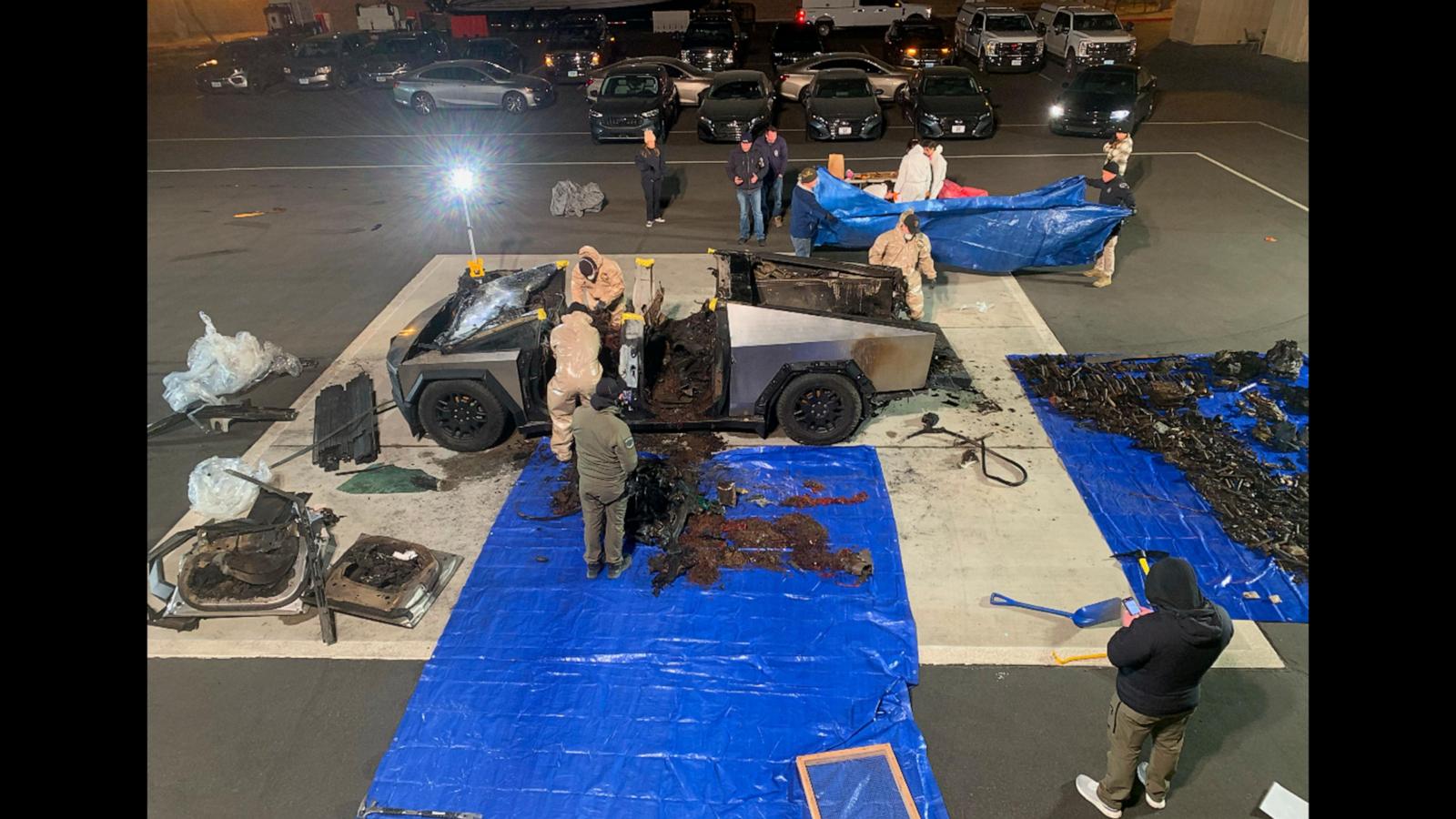Is Your Car Spying on You? The Tesla Cybertruck Explosion and Data Privacy Concerns
In a shocking turn of events, a Tesla Cybertruck exploded in Las Vegas, igniting a firestorm of debate—not just about the cause of the explosion, but about the unsettling amount of data Tesla collected and how such information may be used and accessed. This incident raises crucial questions about privacy in the age of smart cars. Let's delve into the shocking details and explore the implications for your own data privacy.
The Tesla Cybertruck Incident: A Privacy Deep Dive
The incident, which involved the explosion of a Cybertruck filled with fireworks, saw Tesla quickly access and provide authorities with an impressive trove of data on the vehicle's driver, Matthew Livelsberger. Using information gathered from charging stations and onboard software, Tesla meticulously tracked Livelsberger's journey. Las Vegas police were provided with details of his movements, extending across several states. This speedy access has raised a debate, some praising Tesla for quick incident resolution and aid to law enforcement, others expressing great concern.
The Double-Edged Sword of Data Collection
While the efficient data retrieval in this instance aided the investigation, it simultaneously highlighted the pervasive nature of data collection by car manufacturers. Data privacy experts like David Choffnes from Northeastern University, emphasize the double-edged nature of this surveillance, reminding us that the vast amount of data collected by these sophisticated machines could easily be misused. Imagine the implications if this data falls into the wrong hands – a real threat to digital privacy.
Tesla and Data Security Concerns
Tesla, while boasting stringent privacy policies, hasn't exactly built the best track record. Past reports by Reuters revealed employees shared drivers' videos, including footage containing private or sensitive material, among themselves. This breach of confidentiality significantly undermines the assurances presented by the company's privacy statements. It leads us to question the measures Tesla employs to secure sensitive user data. Is the statement of keeping data "private and secure" accurate? Can we really trust that statement when there is previous evidence of security failings?
Beyond Tesla: The Broader Privacy Landscape in the Auto Industry
Tesla’s practices aren't an isolated incident. General Motors, for instance, was targeted by a lawsuit over the alleged unauthorized sale of driver data. The collection and sale of this information, frequently collected from smartphone syncing, raise a significant ethical dilemma. The use of cameras in self-driving cars enhances this data collection, but further increases the potential privacy risks. There is no doubt the collection and potential resale of our location, activity, and sensitive data present real privacy concerns for all vehicle owners.
Current Regulatory Environment: Gaps in Protection
The regulatory landscape for car data falls behind the technological advancements. The absence of strong federal laws, and the fragmented nature of state laws, leaves gaps in the system, exposing users to potential privacy violations. Many laws cover data privacy in general but lack specific regulation about auto data privacy. In a period where modern vehicles function as networked devices, effective data governance and security measures are more crucial than ever.
The Call for Stronger Data Protection Laws
Privacy advocates urge the creation of new laws to protect driver data. They believe law enforcement should have access to essential data to effectively solve crimes, but an equilibrium needs to be struck to protect our right to privacy. National standards are needed to manage how such information is collected and shared by car manufacturers to prevent misuse.
Taking Control of Your Privacy: Practical Steps
While we wait for comprehensive legislation, proactive measures can protect your digital privacy.
Understanding Your Car's Data Collection Practices
Before buying any car, study its data collection practices; inquire about how data is managed, what data is collected, and with whom it may be shared. Carefully review the terms and conditions or any related privacy policies. If your current vehicle has the features discussed above, review its policies. Don't ignore any of this. This should become part of the purchase decision, as you're potentially allowing access to private information by owning these vehicles. You should also review any vehicle terms or data usage rights with other connected automotive services that you may utilize.
Managing Data Settings
Adjust your vehicle's data settings, limiting the data it collects to what is essential. Some vehicles offer options for anonymizing data or limiting the data shared. Understand and configure all the data privacy settings as much as possible.
Utilizing VPNs or other privacy enhancing security services
Explore and engage in use of VPNs and/or other third party services aimed at enhancing digital privacy. A well regarded, reviewed, and rated provider will help maintain your security in all connected services, such as your vehicle, as well as improving the security of other digital communications and networks.
Take Away Points
The Tesla Cybertruck incident underscores the critical need for stronger regulations concerning automotive data privacy. While data plays a vital role in criminal investigations, we need a framework that balances law enforcement needs and individual rights. Proactive measures by both the automotive industry and individual vehicle owners are crucial in mitigating these considerable data privacy risks.









